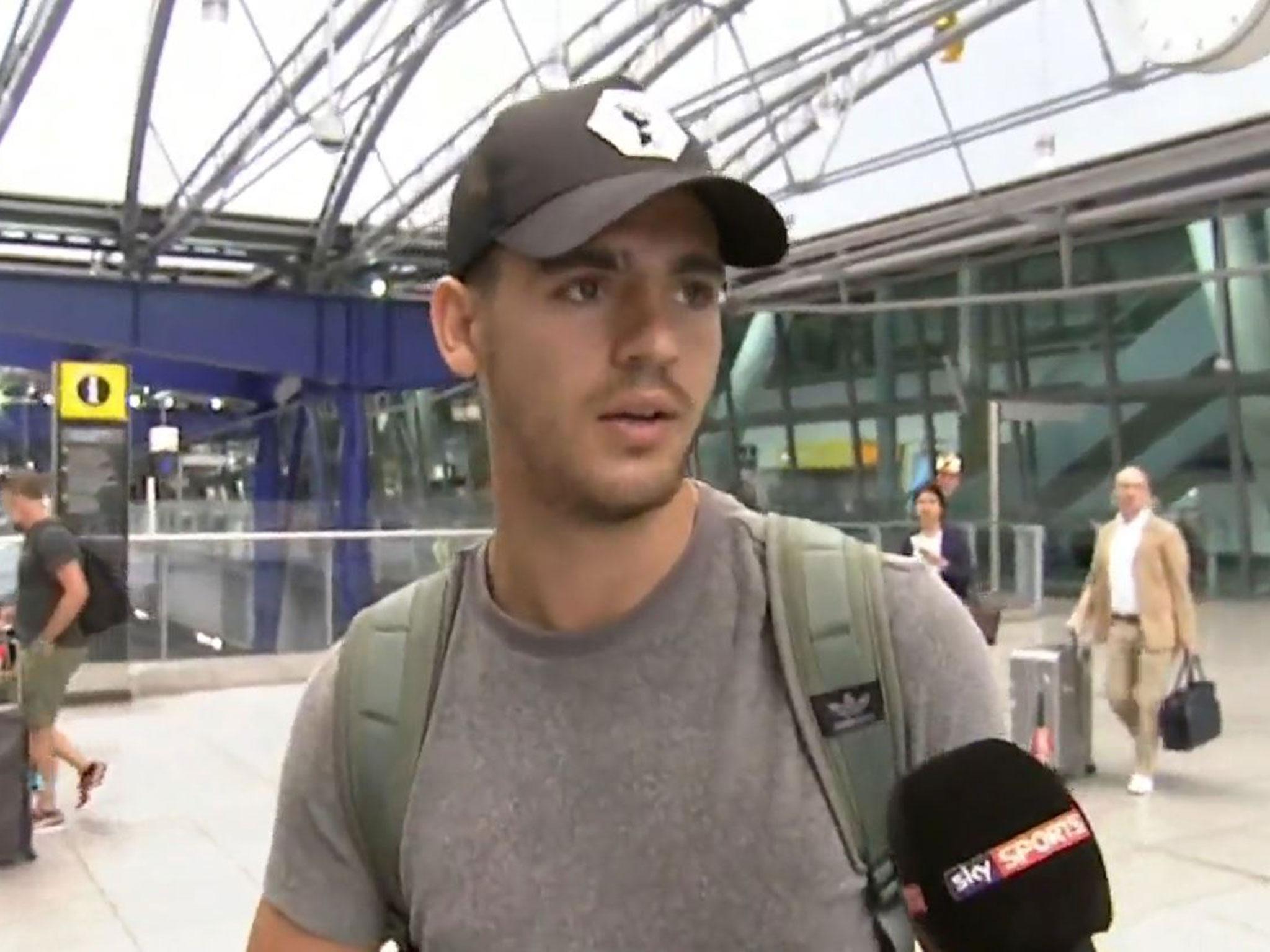Fans are already disconnected from their clubs - a summer of frenzied transfer hyperinflation only makes it worse
If inflation in the transfer market continues at its current rate, it’s possible we will never understand what represents ‘value’ in the Premier League again

Your support helps us to tell the story
From reproductive rights to climate change to Big Tech, The Independent is on the ground when the story is developing. Whether it's investigating the financials of Elon Musk's pro-Trump PAC or producing our latest documentary, 'The A Word', which shines a light on the American women fighting for reproductive rights, we know how important it is to parse out the facts from the messaging.
At such a critical moment in US history, we need reporters on the ground. Your donation allows us to keep sending journalists to speak to both sides of the story.
The Independent is trusted by Americans across the entire political spectrum. And unlike many other quality news outlets, we choose not to lock Americans out of our reporting and analysis with paywalls. We believe quality journalism should be available to everyone, paid for by those who can afford it.
Your support makes all the difference."Though thou exalt thyself as the eagle, and though thou set thy nest among the stars, thence will I bring thee down." While these ominous lines from Obadiah 1:4 were used in this week's bloodthirsty episode of Fargo, they could just as easily apply to the Premier League in 2017. With the floodgates of the league's £5.14bn television deal well and truly opened, English clubs are spending money at an unprecedented rate, their revenues pouring into the transfer market like a raging torrent.
Managers are being lavished with more cash than ever; expectations are at an all-time high for numerous clubs; all in all, English football is flying closer to the sun than ever before.
Whether clubs are getting value for money is another question entirely, however, and one which is increasingly troubling to those of us who don't know what 'value' in football means anymore. In a BBC report on this summer's lavish spending, a football finance expert referred to the current situation in the transfer market as "hyperinflation", and said that anyone selling to an English club is likely to add "at least 40%, if not 50%, to the deal.”
This seems especially true for the traditional top six, with selling clubs routinely dreaming up enormous prices for those they know are most able to pay. In the 2016 summer transfer window, Paul Pogba was the only Premier League signing who broke the £50m mark (albeit by a considerable margin, and providing we’re not counting John Stones’ add-ons); this summer, Romelu Lukaku, Alexandre Lacazette, Alvaro Morata and Kyle Walker have all passed that milestone, and we still have well over a month to go.
With Deloitte predicting continued growth of expenditure on transfer fees and wages in their Annual Review of Football Finance, it would not be a surprise if Premier League clubs smash the record total spend for the summer window come September (it currently stands at £1.165bn). For a club like Everton £30m fees are now standard, when four years ago that would have been almost double Arsenal’s club record outlay; the comparison epitomises the way in which transfers have spiralled into the financial stratosphere.
The problem is that fans and the press have not caught up with this level of inflation, and may never do so again if it continues like this window by window. Nonetheless, supporters often judge success relative to expenditure; with fans making their own financial contributions to football through merchandising, TV subscriptions, season tickets and so on, it is a natural instinct – if somewhat vicarious – to want our clubs to be getting their money’s worth on our behalf.

Taking for granted that fans and the media judge signings relative to how much they cost – just think about the way Pogba’s contributions for Manchester United were analysed last season – the hyperinflation of transfer fees sets us all up to be bitterly disappointed. While previously people may have accepted the conventional wisdom that overseas signings need a season to adapt to English football, it’s hard to imagine that being the case when the signing in question costs £78m.
Most people see this as the sort of money paid for a super-elite footballer with a guaranteed return, as opposed to a talented youngster who has never scored more than 15 league goals in a season, and will struggle to understand it relative to what went before. This will only lead to more short-termism in the way that we judge players and managers; if a £78m signing is not an instant success it will be seen by many as an extravagant waste, and most likely an enormous amount of external criticism will be levelled at the player, his manager and club before long.
While it’s not hard to see how this might lead to a player being labelled a ‘flop’ prematurely (not to mention managers, who the buck famously stops with, and transfer negotiators losing their jobs), it is also bound to exacerbate the toxic atmosphere of modern football. The hyperinflation of transfer fees comes to the backdrop of a decade of stagnant wages for the rest of us, and a society more polarised with regards to economic inequality than at any time in recent memory.

With the novelty and excitement of huge expenditure long ago faded, there is already a pervasive moral outrage among supporters over the mind-boggling money in football, which can be heard in a thousand conversations in stands and pubs every weekend. You can dispassionately explain that transfer fees and wages are dictated by market forces a thousand times over, but the massive inflation we see happening before our eyes only increases the gulf between fans and the game (or consumers and the product, to use business terms).
With rolling commentary, columns and criticism in the age of social media only adding to the outrage, the anger and frustration football naturally generates has been prolonged far beyond matchday. Fans once raged at an underperforming signing for 90 minutes and over the paper the next morning; now they can read hundreds of articles all the week long lambasting that signing in the most unforgiving ways.
If this helps to create a poisonous cloud around the sport, the inflation of transfer fees also leads to a sort of disconnect, a sense of alienation from football.
Many fans feel further away from their clubs than ever, that upsets and annoys them, and ultimately the combination of anger and remoteness leads to disillusionment. Eventually, the Premier League could be brought down by human apathy precisely because it has nested among the stars, ever more financially detached from our reality, further and further away from supporters’ lives.
Join our commenting forum
Join thought-provoking conversations, follow other Independent readers and see their replies
Comments